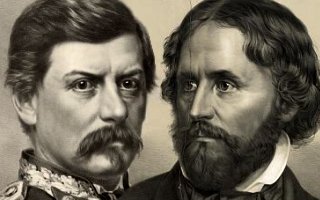21st Century Monarchy Changes
Not up to date on all the monarchy changes in the last 19 years? Here is a list of current monarchs whose reign began in the 21st century, with a little info about each one. There is also a links to further information in the name of each country.
2023 – United Kingdom – Queen Elizabeth II ascended to the throne of the U.K. and its Commonwealth realms in 1952 at age 25. She died on 9/8/2022 at age 96, passing the throne to her then 73-year-old son, who became King Charles III. King Charles is not the oldest successor to a throne on this list. King Salman of Saudi Arabia is.
2019 – Japan – Emperor Naruhito (b. 1960) ascended to the Chrysanthemum Throne on May 1, 2019. He is oldest son of former Emperor Akihito, who abdicated on April 30, 2019 after a 30-year reign.
2019 – Malaysia – Al-Sultan Abdullah (b. 1959) became the 16th Yang di-Pertuan Agong (supreme head of state or king) after the abdication of Sultan Muhammad V on January 6, 2019, marking the 5th time the Malaysian monarchy changed hands in the 21st century. That is not unusual as it changes hands every 5 years. However, it is highly unusual for the Yang di-Pertuan Agong to abdicate.
2016 – Thailand – King Maha Vajiralongkorn (b. 1952), the only son of the long-reigning Thai King Bhumibol Adulyadej, became King at the age of 64 after the death of his father on October 13, 2016. Formal coronation: May 4-6, 2019.
2015 – Saudi Arabia – King Salman (b. 1935), appointed Crown Prince to succeed his brother King Abdullah, became King at the age of 80 on January 23rd when Abdullah died at age 90. King Salman has been active in political affairs for decades in roles that included Deputy Prime Minister, Minister of Defense and Governor of Riyadh Province.
2014 – Spain – Felipe VI (b. 1968) succeeded his father, Juan Carlos, who abdicated on June 18, 2014. He was educated in Spain, Canada and the USA. King Felipe is 6′ 6″ tall, maybe the tallest living monarch.
2013 – Belgium – King Philippe (b. 1960) succeeded his father, Albert II, who abdicated for health reasons on July 21, 2013. Philippe was educated in Belgium, the UK and the US, graduating from Stanford Univ. in 1985.
2013 – Qatar – Sheikh Tamim bin Hamad Al Thani (b. 1980), succeeded his father, Sheikh Hamad bin Khalifa Al Thani, who abdicated on June 25, 2013. The Sheikh was educated in the UK at Harrow School, and the Royal Military Academy Sandhurst, graduating in 1998. Est. net worth: $2.4 billion.
2013 – Netherlands – King Willem-Alexander (b. 1967), succeeded his mother, Queen Beatrix, who abdicated on April 30, 2013. He was educated in the UK and the Netherlands and holds an M.A. degree (1993) from Leiden Univ.
2012 – Tonga – King Tupou VI (b. 1959), succeeded his brother, George Tupou V, who died on March 18, 2012; Tupou VI was educated in the UK and the US, graduating from the U.S. Naval War College in 1985
2006 – Bhutan – King Jigme Khesar Namgyel Wangchuck (b. 1980), succeeded his father, Jigme Singye Wangchuck, who abdicated. The King was educated in Bhutan, the USA, India, and the UK, where he graduated from Magdalen College, Oxford Univ.
2006 – Kuwait – Sabah IV Al-Ahmad Al-Jaber Al-Sabah (b. 1929), succeeded his second cousin, Saad I, (Emir for 9 days). Sabah IV was privately educated in his own country.
2005 – Monaco – Prince Albert II (b. 1958), succeeded his father, Prince Rainier III, who died on 4/5/05. Albert was educated in Monaco and the USA, graduating from Amherst College in 1981.
2004 – Cambodia – King Norodom Sihamoni (b. 1953), succeeded his father Norodom Sihanouk, who abdicated in 2004 (died 2012). The King was educated in Czechoslovakia and studied filmmaking in North Korea. He is the only ruling monarch who speaks Czech.
2004 – UAE (United Arab Emirates) – Sheikh Khalifa bin Zayed Al Nahyan (b. 1948), Emir and Ruler of Abu Dhabi and President of UAE, succeeded his father, Zayed bin Sultan Al Nahyan, who died on 11/2/04. He was educated in the UK.
The Pope is considered a monarch by many because he is the head of state and absolute sovereign of Vatican City. So we could include Pope Francis in the list above. Cardinal Jorge Mario Bergoglio of Buenos Aires, Argentina became pope after Benedict XVI resigned the papacy on 2/28/13. A papal conclave elected Bergoglio as his successor on 3/13/13. Benedict XVI himself was elected pope in the 21st century on 4/19/2005 following the death of John Paul II, whose papal reign began in 1978.
Apparently, even the 21st century popes are no longer agreeing that the pope is a monarch. In a 2005 homily, Pope Benedict XVI said “The Pope is not an absolute monarch whose thoughts and desires are law.” Some Catholics perceive Pope Francis as continuing along that line by making statements that the papacy must change, and cite the 1910 Ex Quo letter of then pope and now saint Pius X as the definitive answer.
Technically, the year 2000 was part of the 20th century, but if we were going by the 2000s, we would also include:
2000 – Luxembourg – Grand Duke Henri (b. 1955), succeeded his father, Grand Duke Jean, who abdicated on October 7, 2000. (died on April 23, 2019). Henri was educated in Luxembourg, France, the UK and Switzerland.
Last update: October 14, 2023









Recent Comments